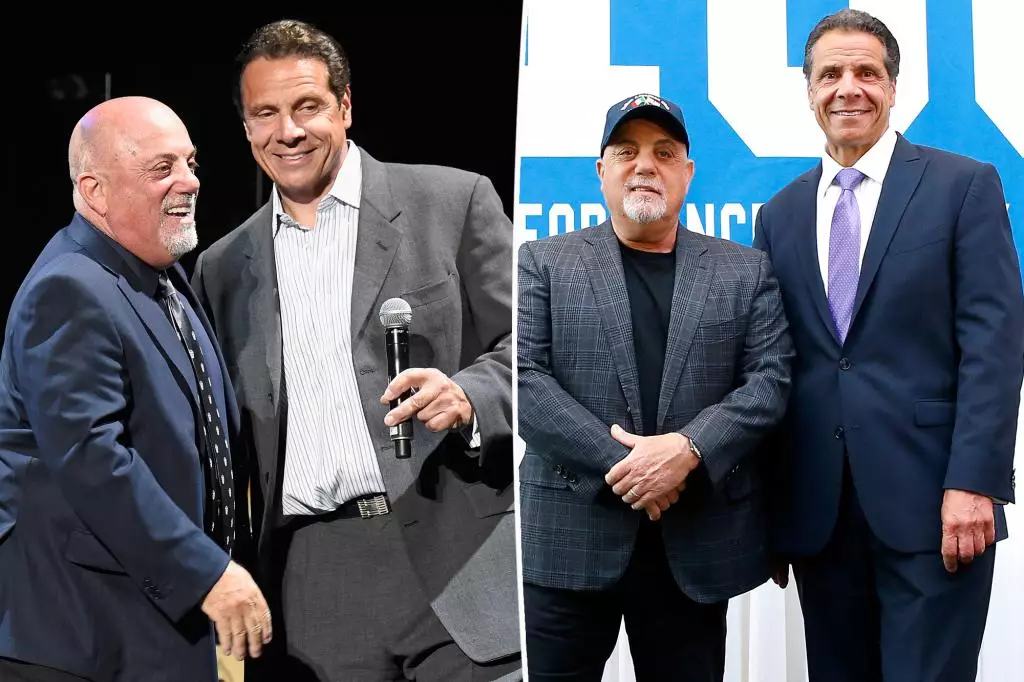In a surprising turn of events, musician Billy Joel has made headlines not only for his legendary music but also for his substantial financial backing of political campaigns. Recently, he contributed $50,000 to a super PAC supporting Andrew Cuomo’s bid for mayor of New York City. This decision highlights the complex relationship between celebrity status and political influence. Joel’s donation is steeped in a history of support for Cuomo, illustrating how personal connections can shape political dynamics. For a city often characterized by its frenetic pace and cutthroat politics, the intersection of art and governance emerges as both an intriguing and problematic phenomenon.
Joel’s involvement traces back several years, fueled by his friendship with Cuomo, who is the godfather to one of his daughters. This personal connection raises questions about preferential treatment in politics, where familial ties may overshadow merit-based considerations. While celebrities can galvanize public attention for political causes, it’s essential to examine what this means for the average voter. Are they merely spectators in a game dominated by wealth and influence?
The Funding Landscape
The PAC Joel chose to support, Fix the City, has attracted considerable funds from a range of high-profile donors, including media mogul Barry Diller and hedge fund manager Daniel Loeb, with each contributing a jaw-dropping $250,000. Such financial muscle underscores the increasing dependence of political campaigns on super PACs, which seem to represent the interests of a privileged few rather than the broader electorate. This financial plethora can distort democratic processes, as candidates become beholden to their wealthy backers’ interests, potentially sidelining the voices of less affluent constituents.
Moreover, the lack of limits on contributions to super PACs invites a troubling scenario where political capital is traded like a commodity. In an age where grassroots movements have made significant strides, the sheer volume of money flowing into these PACs raises concerns about equity and accessibility within the political arena. It seems that the political landscape is not merely dictated by popular votes but increasingly by financial prowess, creating an uneven playing field for candidates lacking affluent support.
New Voices in the Political Sphere
Amidst this financial frenzy, other candidates also emerge, seeking their share of influence and support. For instance, leftist state assemblyman Zohran Mamdani is rallying a different base, aiming to shift the political narrative in a city often accustomed to centrist leadership. Such diversification in candidates may signify a yearning for change within New York’s political fabric. However, this passion risks being overshadowed by the overwhelming donations to candidates with high-profile PAC backing.
Cynthia Nixon, a former rival of Cuomo and a staunch advocate for progressive values, recently contributed $5,000 to a separate initiative supporting Mamdani. This counter-contribution showcases a burgeoning urge among citizens to inject fresh ideas and perspectives into the governance of New York City. Yet, the lingering influence of super PACs and their wealthy donors poses a significant barrier to this aspiration, emphasizing the need for a push towards campaign finance reform.
Through Billy Joel’s influential donation and the broader implications of celebrity involvement and super PAC funding, the intricate ties between wealth and political power are called into question. Actors, musicians, and moguls may hold sway over political decisions, but will New Yorkers allow their democracy to be shaped by the elite few?

Leave a Reply